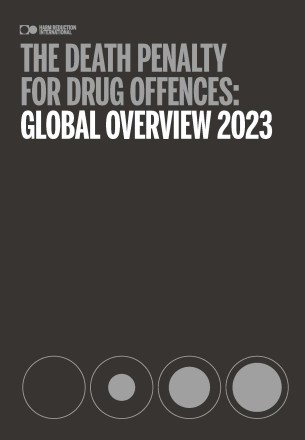
The Death Penalty for Drug Offences: Global Overview 2023
download full reportmain findings
34
countries still retain the death penalty for drug offences
467+
people executed in 2023
375+
death sentences imposed in 2023
3000+
people on death row for drug offences worldwide
Introduction
Harm Reduction International (HRI) has monitored the use of the death penalty for drug offences worldwide since our first ground-breaking publication on this issue in 2007. This report, our 13th on the subject, continues our work of providing regular updates on legislative, policy and practical developments related to the use of capital punishment for drug offences, a practice which is a clear violation of international human rights and drug control standards.
This year marks the beginning of a new approach to our flagship publication. Every edition of this report will provide key data and updated categories, as well as high-level developments at the national and international level. A deeper analysis of developments and trends will be published in the 2024 edition and on alternate years. The methodology used for both reports remains the same.
HRI opposes the death penalty in all cases without exception.
Global Overview
At the end of 2023, 34 countries retained the death for drug offences. In July 2023 Pakistan took the landmark decision to remove the death penalty from the list of punishments that can be imposed for certain violations of its Control of Narcotics Substances Act. This year also saw notable progress in Malaysia, which abolished the mandatory death penalty for all offences, including drug-related ones. This reform may impact the lives of over 700 people on death row for drug offences and bring the country one step closer to total abolition of capital punishment.
In stark contrast to these positive developments is the record-high number of drug-related executions in 2023 – at least 467. Of those executed, at least 59 people belonged to ethnic minority groups (in Iran and in Singapore), 13 individuals were foreign nationals, and six were women. These figures confirm that these groups are uniquely vulnerable to capital punishment as a tool of drug control. Despite not accounting for the dozens, if not hundreds, of executions believed to have taken place in China, Vietnam, and North Korea, the 467 executions that took place in 2023 represent a 44% increase from 2022. Ninety-eight percent of known drug-related executions took place in Iran.
Drug offences were responsible for roughly 42% (almost one in two) of all executions confirmed globally in 2023- the highest recorded since 2016.
Drug-related executions were confirmed in five countries: China, Iran, Kuwait, Saudi Arabia and Singapore. Executions for drug offences are also highly likely to have taken place in Vietnam and North Korea but this cannot be confirmed due to censorship.
Confirmed death sentences for drug offences increased by more than 20% from 2022. A minimum of 375 people were sentenced to death for drug offences, of which at least 31 were foreign nationals, and 15 were women. Roughly half of all death sentences for drug offences were passed by courts in Vietnam (188+) and a quarter in Indonesia (114+). The remaining quarter were imposed in 14 other countries.
Information gaps on death sentences persist, meaning many (if not most) death sentences imposed in 2023 remain unknown. Most notably, no accurate figure can be provided for China, Iran, North Korea, Saudi Arabia and Thailand. These countries are all believed to regularly impose a significant number of death sentences for drug offences.
At least 3000 people are on death row for drug offences in at least 19 countries.
Two countries were re-classified this year. Kuwait was placed in the ‘high application’ (from ‘low application’) category as it carried out its first drug-related execution in over a decade. Yemen was moved from the ‘insufficient data’ to the ‘low application’ category, due to higher availability of information on drug-related sentences imposed.
2023 also saw international actors expressing strong positions against the death penalty for drug offences in response to changes at the domestic level. This included the United Nations (UN) Office of the High Commissioner for Human Rights (OHCHR), UN Special Procedures, and the European Union. The UN Office on Drugs and Crime (UNODC) repeatedly failed to take a public position on matters related to the death penalty for drug offences.
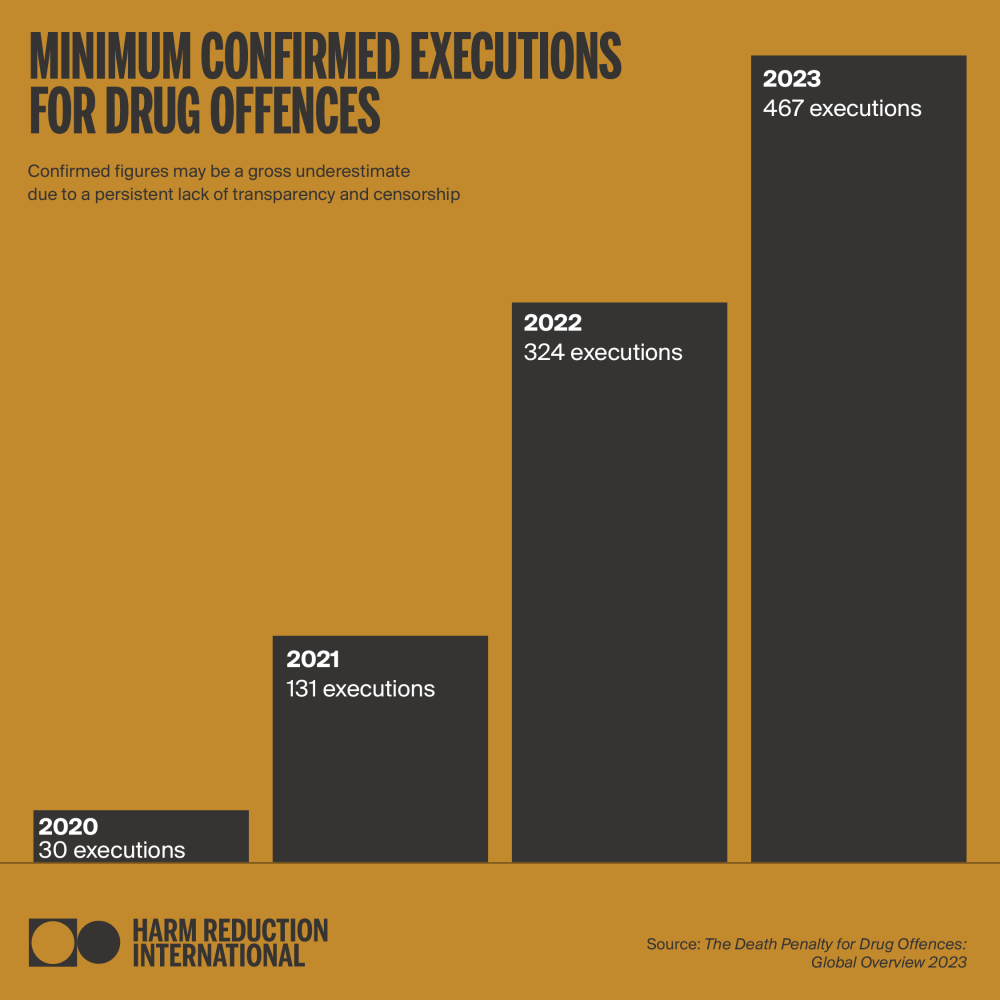
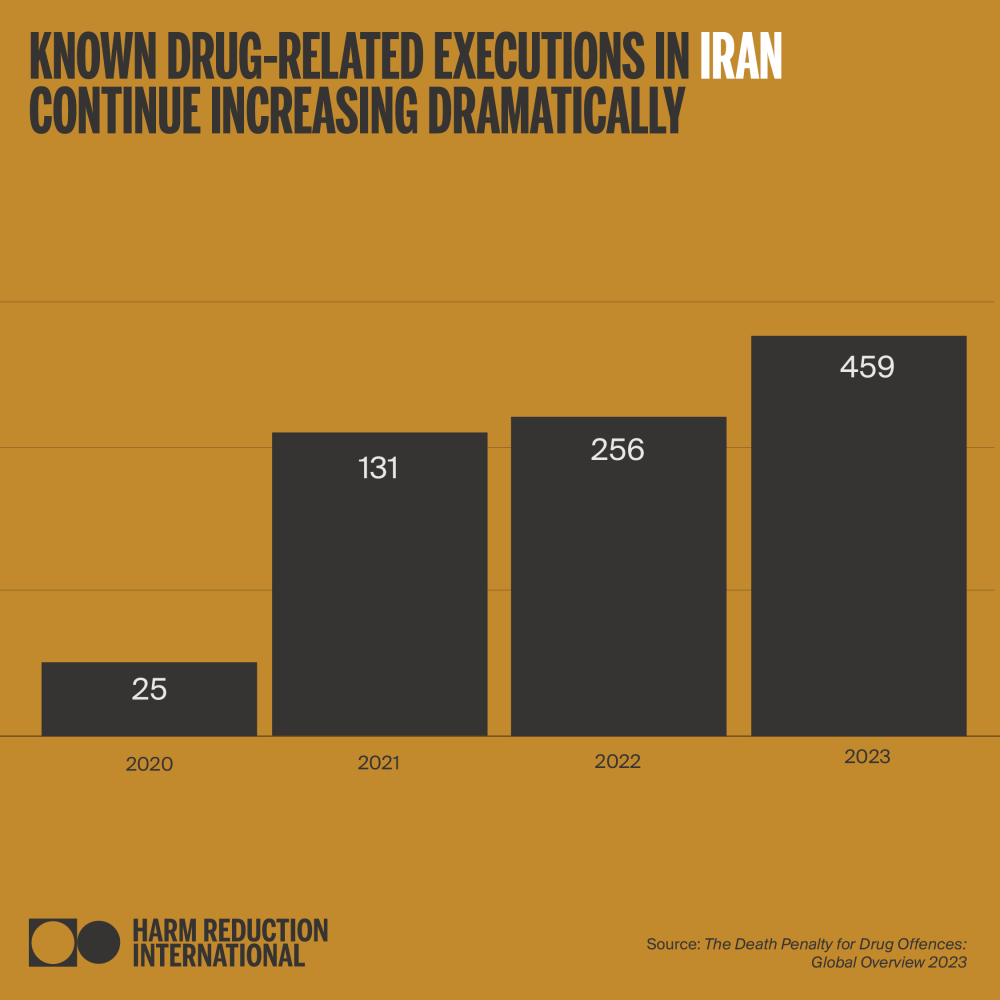
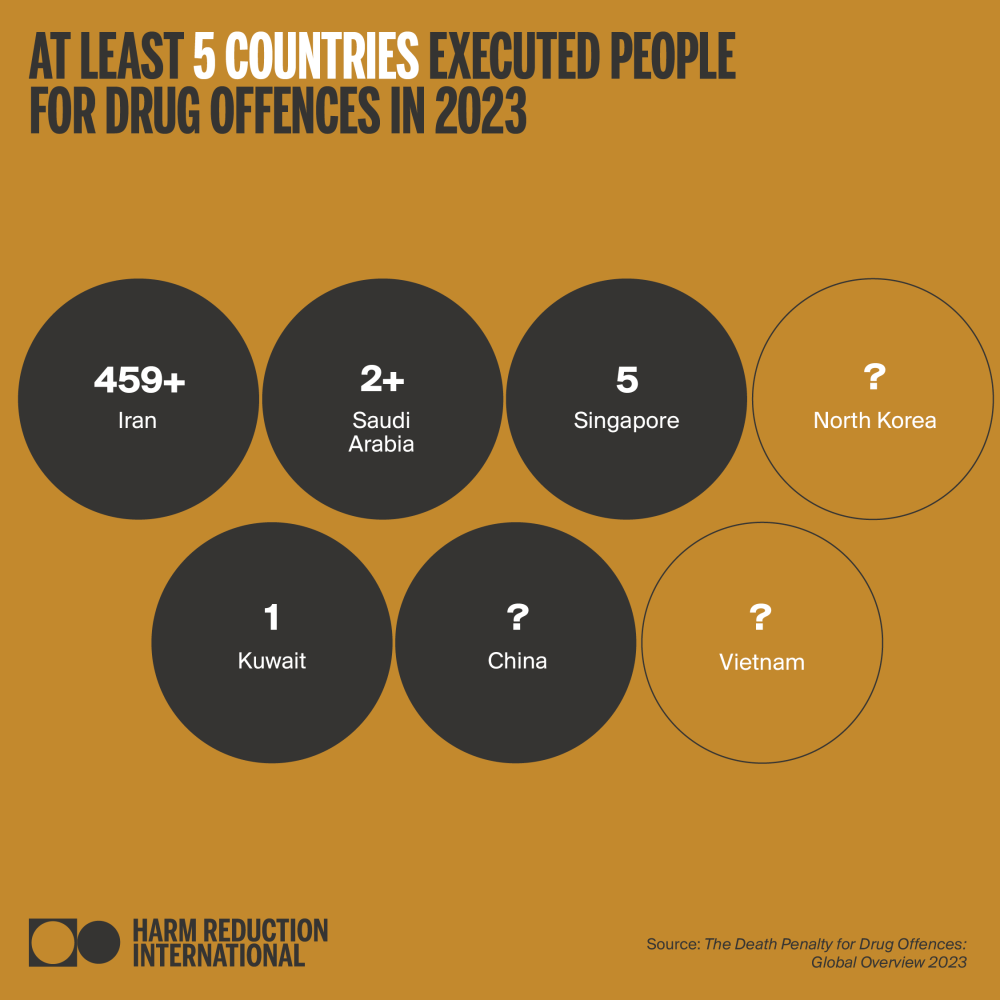
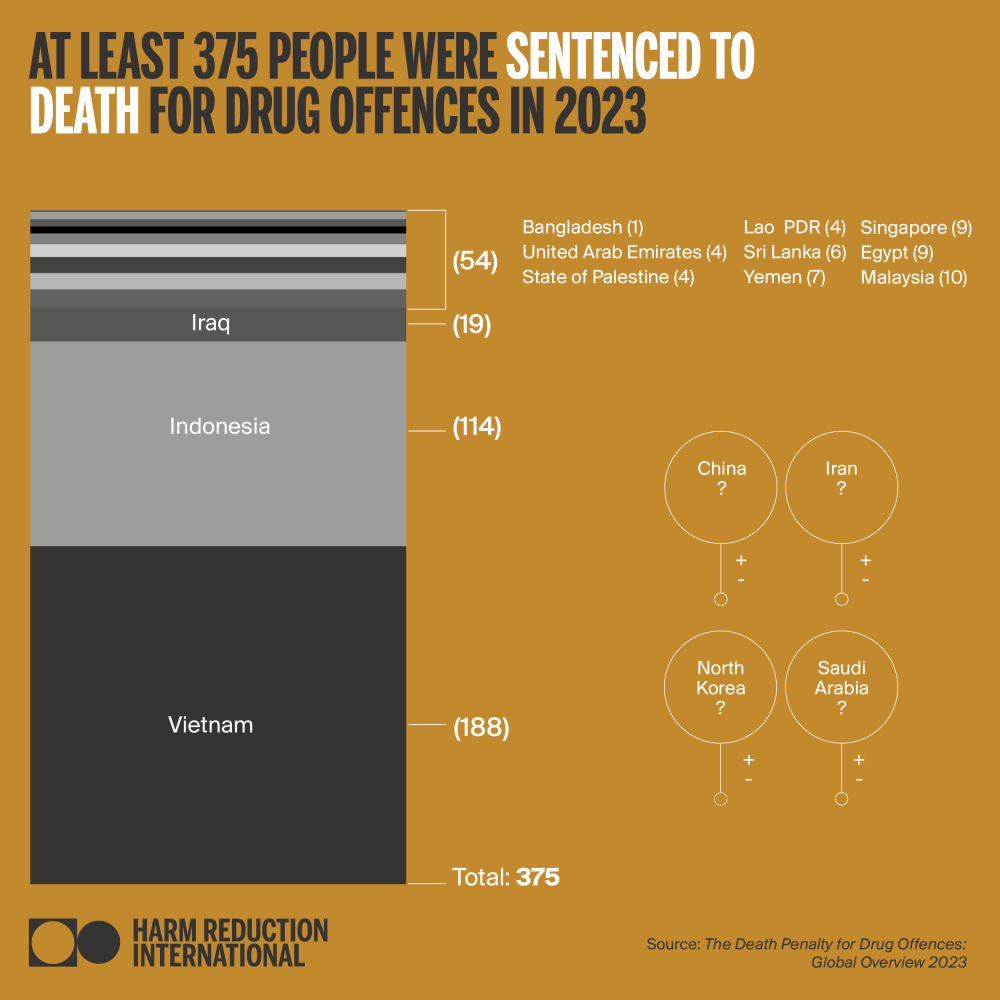
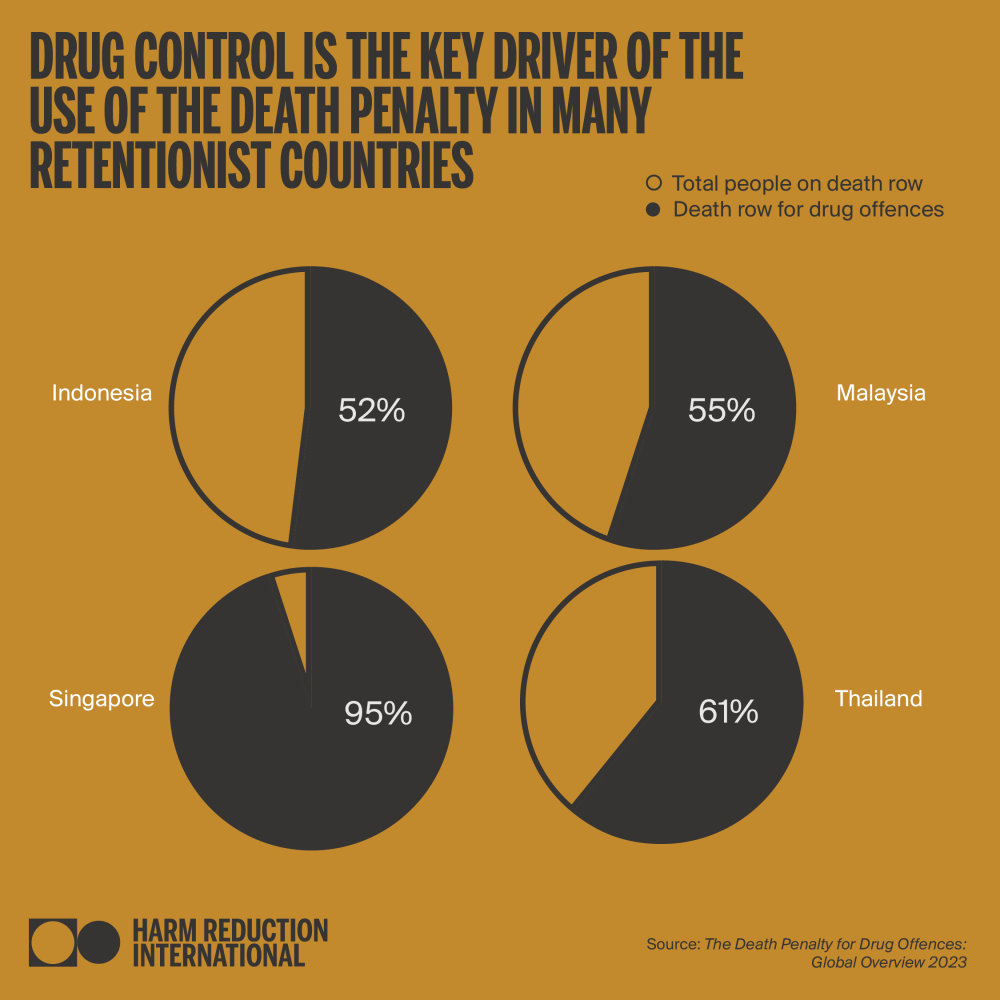
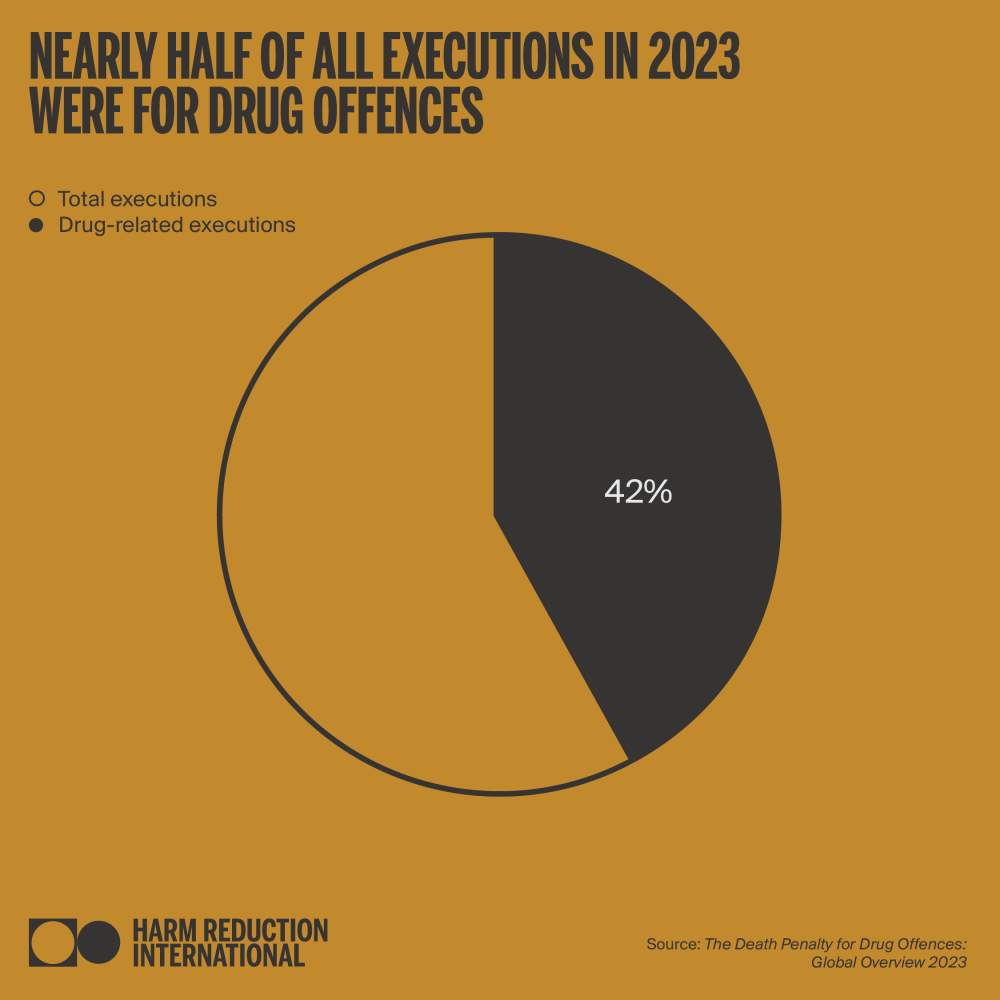
Related resources
Don't miss our events and publications
Subscribe to our newsletter